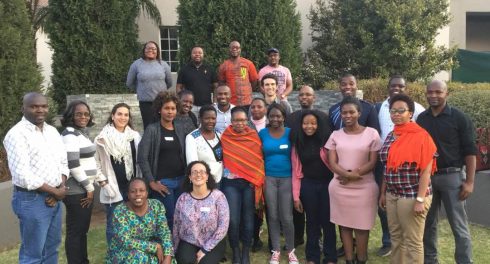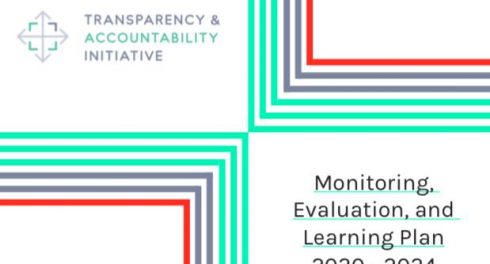 Experts from TABridge shared wisdom about mentoring with the techies and advocates gathered at September’s Open Knowledge Conference (OKCon) in Geneva. In a panel on technology projects for NGOs, three mentors and T/AI’s director, Vanessa Herringshaw, reported on what these mentorships have shown us so far.
Experts from TABridge shared wisdom about mentoring with the techies and advocates gathered at September’s Open Knowledge Conference (OKCon) in Geneva. In a panel on technology projects for NGOs, three mentors and T/AI’s director, Vanessa Herringshaw, reported on what these mentorships have shown us so far.
During 2013, six TABridge mentors worked with eight different organizations, from Zambia to India to Indonesia. Our lessons to date are instructive for anyone working in technology and transparency, and some turn out to be universal for any group seeking strategies for innovation.
The mentors agreed that people come to tech projects with varying assumptions about tools, and it’s important to bring these differences to light. In the second photo here, for instance, a quick opinion poll showed that most people do not think that posting a new website is enough to spark usage. But one technologist, seen on the left with mentor Sarah Schacht, disagreed, saying that data itself can attract a small group whose work can build visibility. Participants also differed about whether or not organizations need a full-time tech staff to succeed online.
OKCpanel3Not everyone uses the same tools the same way. Gaba Rodriguez of Data.uy urged people to ask questions early and often in their own work. “Start by looking at your community of users and only then match your tools to them,” she said. Too often organizations just “look at technology, then go,” Gaba said, instead of taking the time to test their assumptions.
After mentoring two projects, Lucy Chambers of the School of Data reminded the group that often what appear to be technology problems “may be human problems.” If an organization relates to a government in a certain way, or has entrenched habits—good or bad—no technology can arrive and instantly change behavior. Only thoughtful conversations focused on people, not tools, will shift the expectations that set habits.
Sarah reinforced Lucy’s advice with her own mentoring lessons: Flexibility equals success, she said, and your strategic approach must be “agile” in the same sense that software developers use the term: create, test, review then revise. As simple as this sounds, when organizations run on tight workplans and circumscribed theories of change, the shift to an agile approach can be jarring, or impossible.
As we’ve seen at other presentations of the TABridge approach, the call for strategic thinking and user-centric problem-solving struck a chord with our peers. The audience was overflowing from our panel room at Geneva’s Centre International de Conferences (and their enthusiasm was all the more surprising since the air conditioning was not so good).
An essential topic for further conversation was raised during the final moments by Anahi Iacucci of the Internews Center for Innovation & Learning.
Civil society groups have been talking for years about how to promote effective technology adoption, Iacucci said, but the conversation seems to continue without a clear sector-wide solution, and enhancing tech approaches on a project basis is like, in her words, “emptying the sea with a spoon.” How, she asked, can tech and transparency donors work with the grantee community to push a more systemic shift toward strategic thinking about technology? How can the rapport between donors and grantees become more frank, and less risk-averse? How can grant-makers and advocates learn to question their own assumptions more regularly, and develop more agile approaches to both strategy and technology? Basic “methodologies,” Iacucci said, must be open for adaptation and upgrades, just as project-based tools are.
The Transparency and Accountability Initiative is committed to continuing this conversation, online and in future gatherings. If you have thoughts on this topic, or questions about our Mentorship program, please add your comments here, tweet us @TAInitiative or write to us at [email protected].


